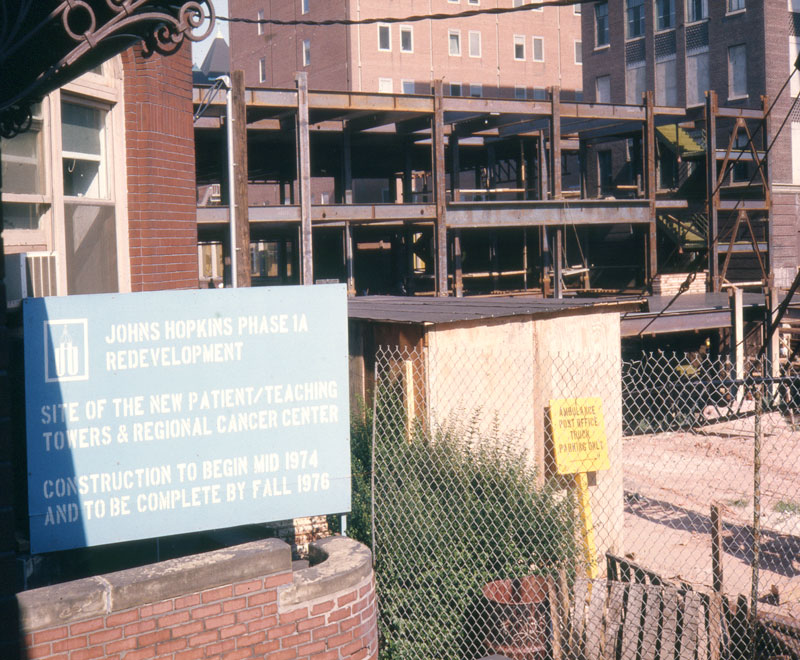Timeline
2020's
Celebrating 50 Years: The 2020s mark continued advances in technology that speed progress against cancer. In 2023, the Kimmel Cancer celebrates its 50th anniversary and releases a special issue of Promise & Progress to chronicle its history.

2010's
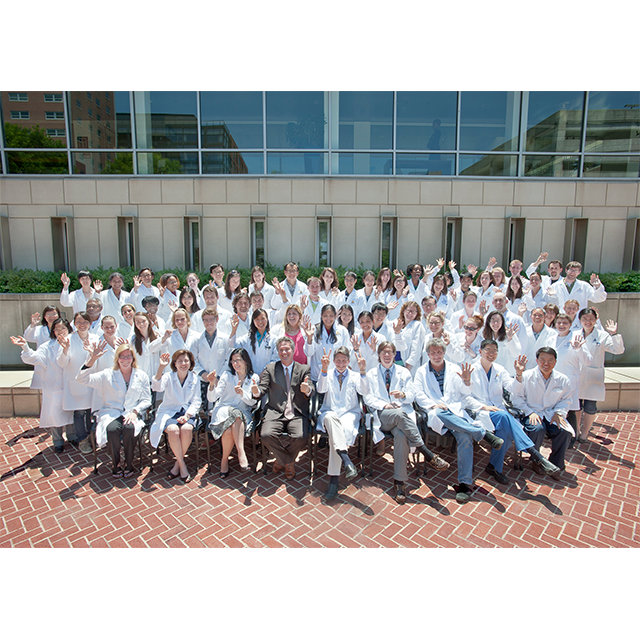
2000's
Translational, bench-to-bedside research continues to be the hallmark of our Cancer Center. Breakthroughs in research and clinical care are facilitated by two new cancer research buildings, and our Center is renamed in honor of philanthropist, Sidney Kimmel.
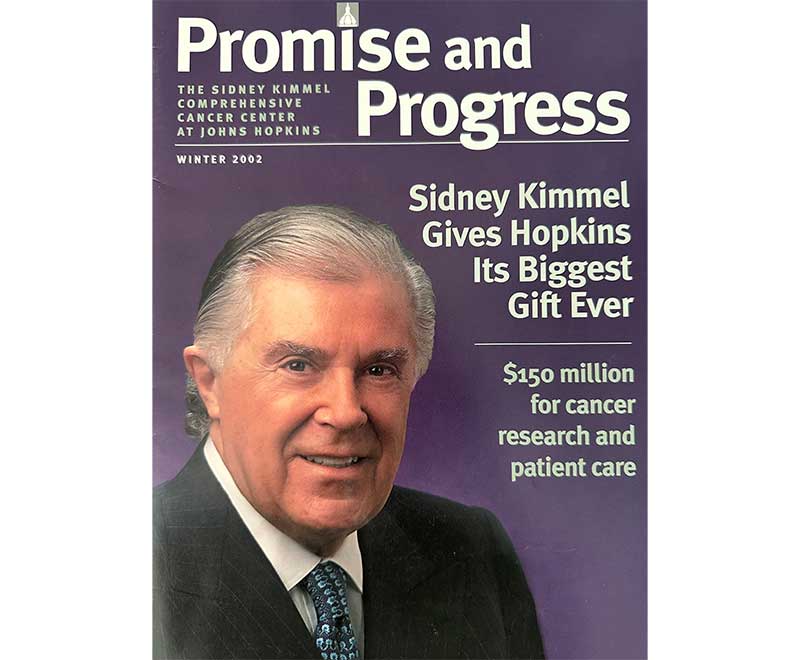
1990's
The field of epigenetics, characterized by chemical alterations to genes that support the growth and spread of cancer without mutating the DNA, becomes part of mainstream cancer medicine. The Cancer Center’s discoveries in genetics and epigenetics were regarded as the most relevant in cancer biology, earning the Center the nickname “Cancer Research Powerhouse.”
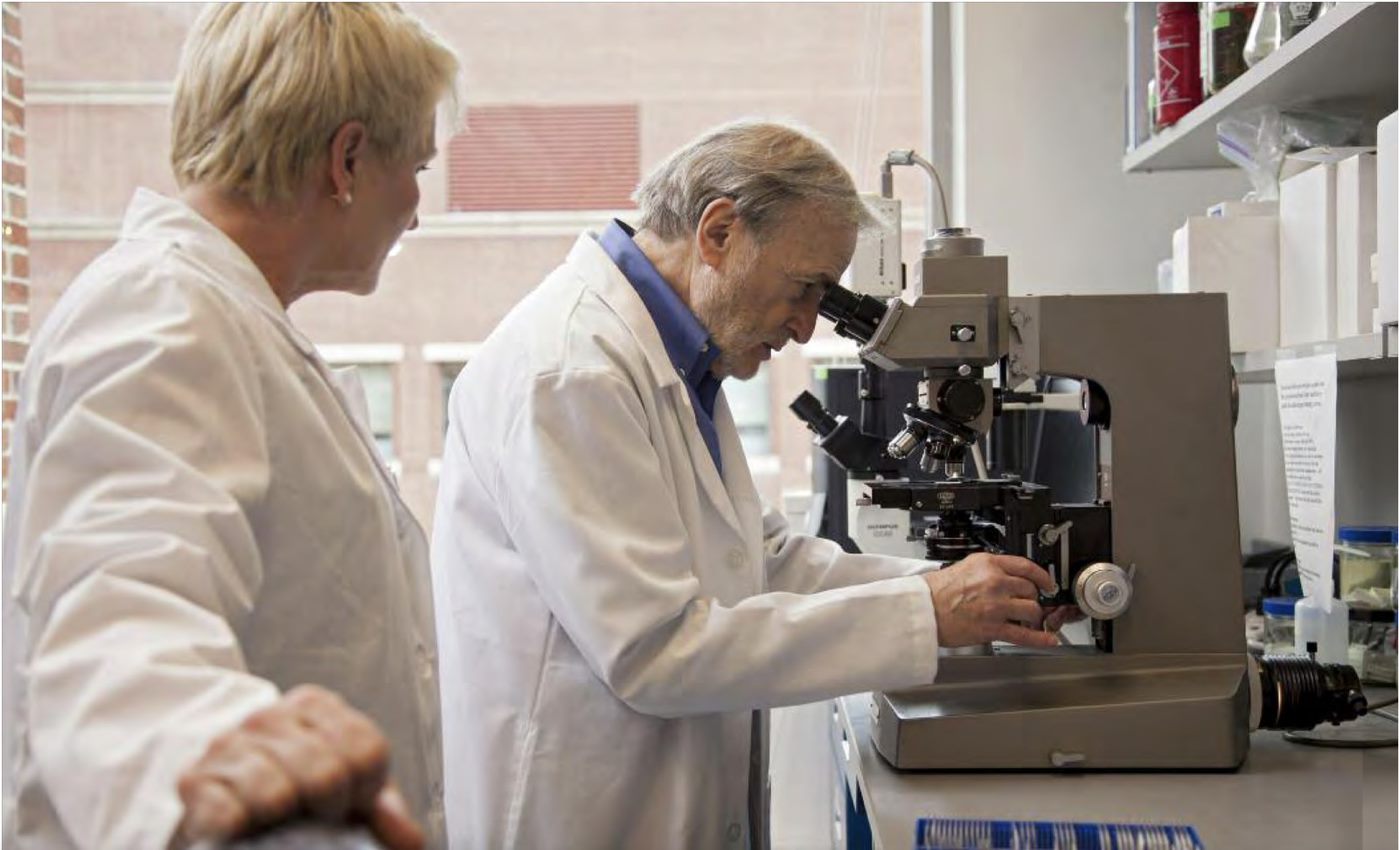
1980's
Our researchers began to crack the cancer code, revealing it as a disease caused by an accumulation of genetic mistakes. This became the paradigm for much of modern cancer research, ushering in the age of molecular cancer biology with new gene-targeted therapies and paving the way for gene-based screening tests for cancer.
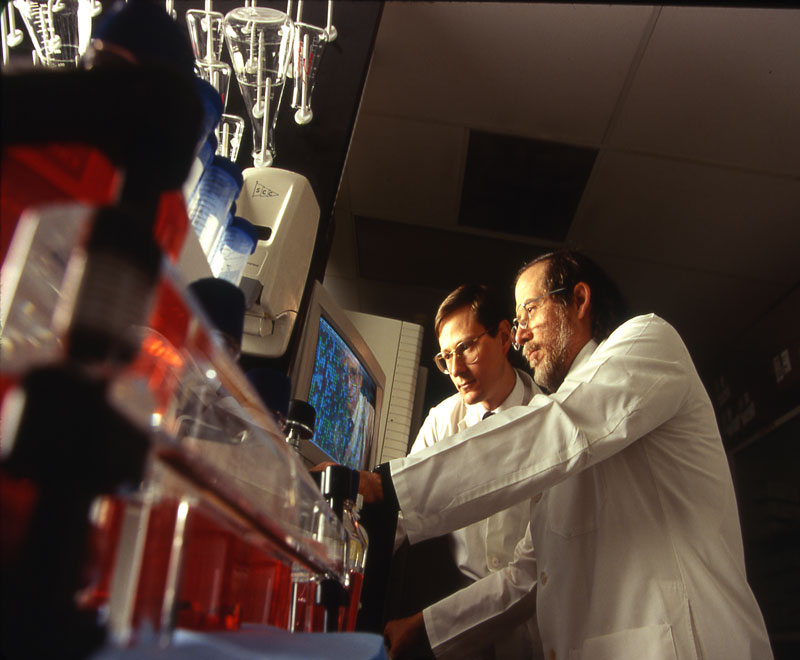
1970's
The National Cancer Act of 1971 leads to the creation of the National Cancer Institute. In 1973, the trustees of the University and Hospital approved the construction of the Johns Hopkins Oncology Center, which opened in April 1977. The Center was among the first to earn comprehensive cancer center status and recognition as a “Center of Excellence.”
